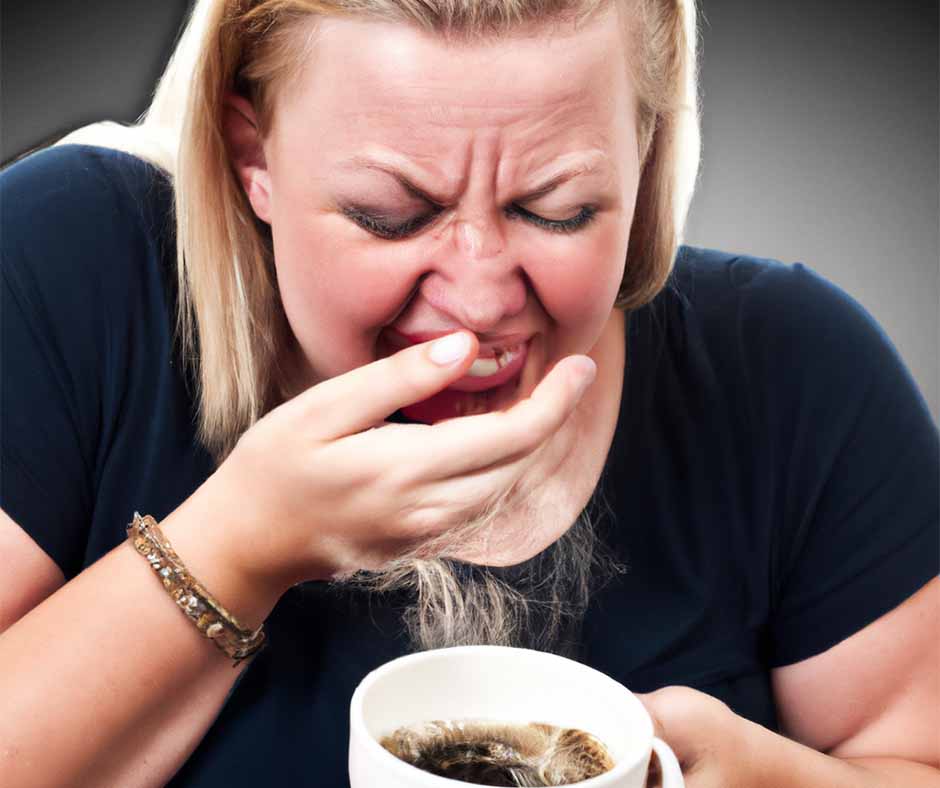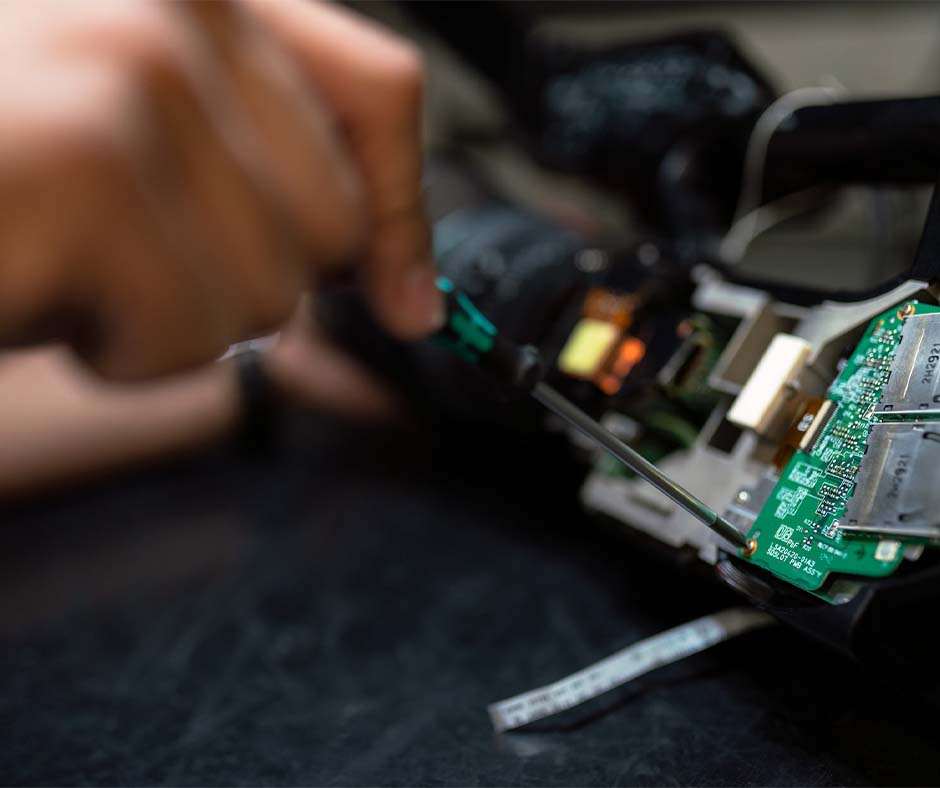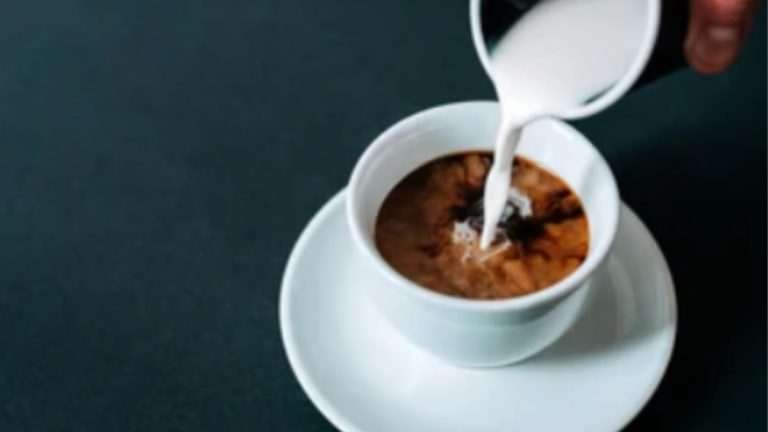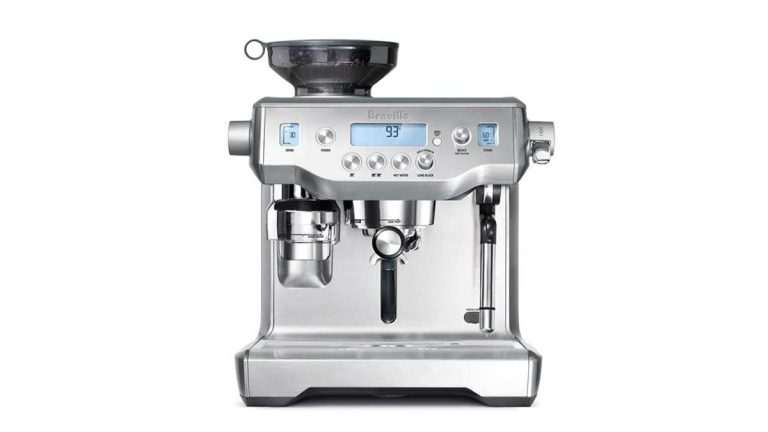coffee smells like skunk
There’s nothing quite like a fresh cup of coffee in the morning, but what do you do when that cup of joe smells more like a skunk than your favorite blend? If your coffee smells like skunk, it’s not just your nose playing tricks on you. This is a real problem that a variety of factors can cause. In this blog post, we’ll explore the potential causes of this issue, as well as troubleshooting steps and prevention tips to help you avoid it in the future.
Factors that contribute to the problem

A variety of reasons might cause coffee to smell skunky. Here are some of the most typical offenders:
- Old and stale coffee beans: They can release an unpleasant smell called skunky when they are old and stale.
- Improper coffee bean storing: Coffee beans can absorb smells from their surroundings, including those of other meals and cleaning supplies, if they are not adequately maintained in an airtight container.
- Water quality: Your coffee’s flavor and fragrance may be affected by the quality of the water you use to brew it. For instance, coffee’s flavor and aroma may be impacted by mineral deposits left behind by hard water.
- Inadequate cleaning of brewing equipment: If your coffee maker or grinder is not thoroughly cleaned, it may leave behind leftover oils and other contaminants that affect the flavor and aroma of your coffee.
- Roasting problem: The fragrance and flavor of the coffee beans might also be affected by problems with the roasting process.
Troubleshooting steps

If your coffee smells like skunk, here are some troubleshooting steps to take:
- Check the coffee beans to ensure they are fresh: If they are old and stale, it’s time to invest in some fresh ones.
- Ensure the coffee beans are stored properly in an airtight container: Ensure they are stored in an airtight container to prevent them from absorbing odors.
- Check the water quality and use filtered water: Make sure you’re using high-quality, filtered water to brew your coffee.
- Clean the brewing equipment, including the coffee maker and grinder: Regularly clean and maintain your brewing equipment to prevent residual oils and other substances from impacting the taste and aroma of your coffee.
- Check with the roaster to ensure there were no issues during the roasting process: If you suspect there were issues during the roasting process, reach out to your roaster for more information.
Prevention tips
Here are some preventative measures to take to prevent the issue of coffee that smells like skunks in the future:
- Keep fresh coffee beans in a cool, dry place: Invest in high-quality, freshly roasted coffee beans, and keep them sealed in a container.
- Brewing with purified water For the finest flavor and aroma, use high-quality, filtered water.
- Often maintain and clean your brewing equipment: Regular maintenance and cleaning of your brewing equipment may significantly reduce the likelihood of flavor and fragrance problems.
- Choose a trustworthy roaster: Lastly, pick a reputed roaster with a track record of producing top-notch coffee.
Conclusion
Coffee that smells like skunk can be a real downer, but with some troubleshooting and prevention tips, you can avoid this issue and enjoy a fresh, flavorful cup of coffee every time. Remember to invest in fresh coffee beans, use filtered water, regularly clean your brewing equipment, and choose a reputable roaster to get the best possible results. Happy brewing!
Q: Why does my coffee smell like skunk?
A: Several factors can contribute to coffee smelling like a skunk, including old and stale coffee beans, improper storage, water quality, unclean brewing equipment, and roasting issues.
Q: How can I troubleshoot the problem of coffee smelling like a skunk?
A: You can troubleshoot the problem by checking the freshness of the coffee beans, storing them properly in an airtight container, using filtered water, cleaning the brewing equipment, and checking with the roaster to ensure there were no issues during the roasting process.
Q: How do I keep my coffee from tasting skunky?
A: You can prevent coffee from tasting like skunk by buying fresh beans, storing them properly, brewing with filtered water, periodically cleaning and maintaining brewing equipment, and choosing a reliable roaster.
Q: Is it OK to consume skunky-smelling coffee?
A: Coffee with a skunk odor may not be pleasant, but it is often harmless. Hence, if coffee has an awful flavor or fragrance, it is recommended that you avoid drinking it.
Q: Can the skunk smell affect other food or drinks?
A: The skunk smell from coffee is unlikely to affect other food or drinks as long as they are properly stored and not near the coffee. However, storing food and drinks separately and in airtight containers is always a good idea to prevent cross-contamination.







